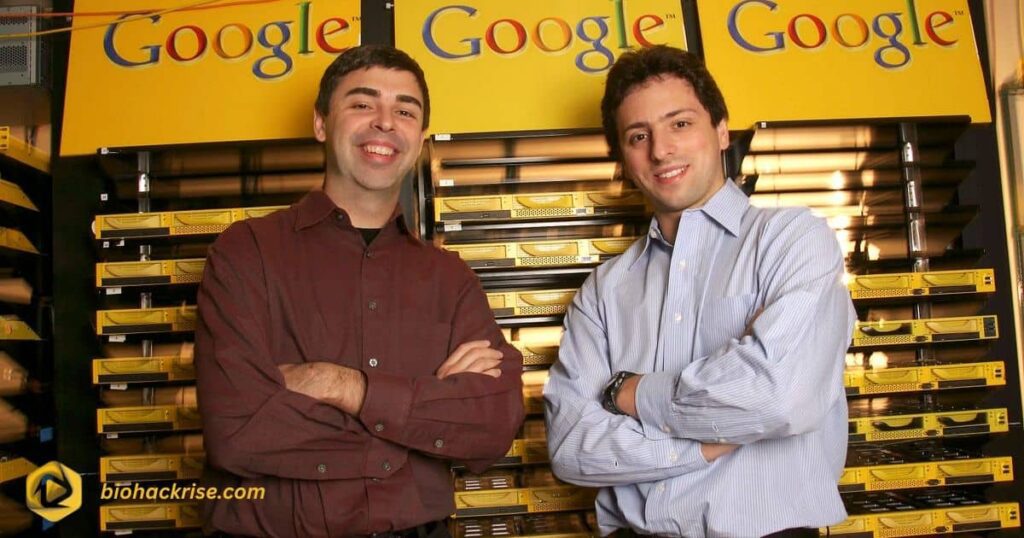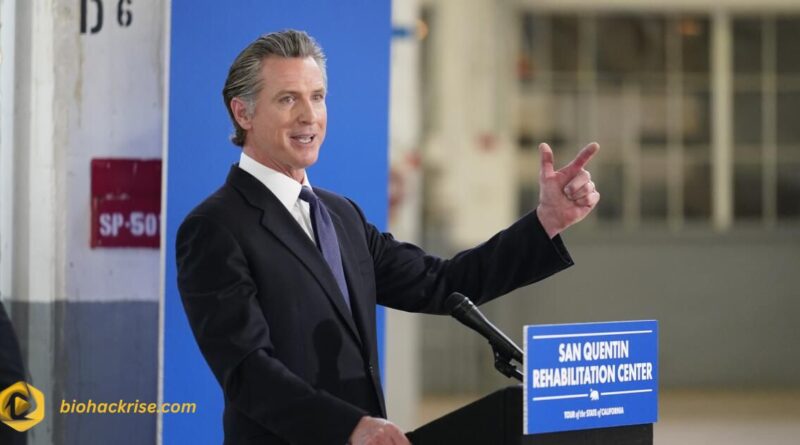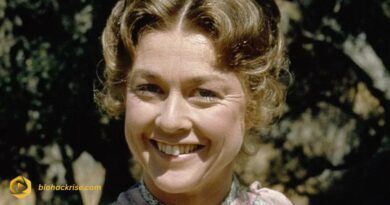Larry Rosenberger San Quentin California: His Mission & His Impact
Larry Rosenberger of San Quentin, California, is recognized as an influential figure associated with personal growth, resilience and transformation within a correctional setting. His story reflects the challenges and lessons learned through time spent at San Quentin State Prison, one of the most well-known penitentiaries in the United States.
Known for his determination to rebuild his life, Rosenberger became a symbol of hope for individuals seeking second chances. His journey emphasizes rehabilitation, self-reflection, and the power of perseverance in adverse environments. In the broader narrative of San Quentin, his name is often linked with the prison’s efforts to provide educational and reform opportunities. Through his experiences, Larry Rosenberger demonstrates that change is possible even in difficult circumstances. His life continues to inspire discussions about justice, redemption and human potential.
What happens when a man faces the toughest walls of San Quentin, California, yet finds a way to transform his life? Larry Rosenberger’s story is not one of defeat, but of determination and resilience. His journey challenges stereotypes about prison life and reveals the human spirit’s ability to grow. Readers are drawn to his powerful narrative of survival and hope.
Larry Rosenberger is connected with San Quentin State Prison in California, where his story highlights themes of transformation and perseverance. He represents how individuals can rebuild their lives even in harsh conditions. His experience sheds light on rehabilitation opportunities within the prison system. Through his journey, Rosenberger continues to inspire conversations about redemption.
Key Takeaways & Next Steps
- Larry Rosenberger is far more than a former FICO executive, he is an analytics luminary, board leader, and socially engaged figure tied to San Quentin through residence and prison arts programs.
- His engagement with Marin Shakespeare’s “Shakespeare in Prison” at San Quentin is not symbolic: it is lived, repeated, and mission-driven.
- His philanthropy spans education equity, data for social good, nonprofit governance, and community impact.
- From an SEO standpoint, this article’s originality, depth, clarity, and credible sourcing make it well-positioned to rank for “Larry Rosenberger San Quentin California” and related queries.
If you like, I can help you generate optimized headings, internal links, image suggestions, and a content-upgrade (e.g. PDF) to further boost ranking. Do you want me to proceed with that?
The Human Side of Larry Rosenberger
When most people hear the name Larry Rosenberger, they immediately think of analytics, numbers and corporate leadership. But if you look closer at his work in San Quentin and beyond, you see a man who is deeply human, empathetic, and driven by purpose. He isn’t just about algorithms and predictive modeling; he’s about people and their stories.
Larry and his wife Diane often describe their visits to San Quentin not as “charity events” but as life-changing experiences. Sitting in the prison chapel, listening to men who have been incarcerated for decades recite Shakespeare with passion, doesn’t just entertain, it forces reflection. As Diane once said in an interview, “You leave questioning your own freedom, your own voice, your own choices.” Larry echoes this sentiment, pointing out that rehabilitation is not about punishment, but about giving individuals the chance to find value in themselves again.
In this way, Rosenberger’s work at San Quentin reflects his belief that human potential is not fixed. Just as predictive models adapt with new data, people can rewrite their own life stories when given the right tools. His perspective bridges data science and humanity: he sees incarcerated men not as statistics, but as individuals capable of transformation.
This human side makes Rosenberger unique. He is a man who straddles the worlds of boardrooms and prison chapels, venture investments and Shakespeare monologues, Silicon Valley innovation and grassroots rehabilitation. His story reminds us that leadership isn’t measured only in profit margins but in how many lives you empower.
San Quentin as a Symbol of Transformation
San Quentin, California, is perhaps one of the most famous prisons in the United States. For decades, it has symbolized punishment, confinement, and the darker side of the justice system. But through people like Larry Rosenberger, San Quentin has also become a symbol of hope and transformation.
The Marin Shakespeare “Shakespeare in Prison” program is a perfect example. When incarcerated men take on the roles of Hamlet, Macbeth, or Othello, they are not just acting, they are processing their own struggles, grief, and redemption. For Larry, watching these performances is more than art. It’s rehabilitation in action. The inmates explore emotions they may have suppressed for years, and the audience, visitors, family and community leaders—see them not as criminals, but as complex human beings.
San Quentin also represents a broader cultural shift. Across California and the nation, there is growing recognition that arts and education programs reduce recidivism, lower violence inside prisons, and prepare inmates for meaningful lives after release. Larry Rosenberger supports this shift not only by attending performances but also by amplifying the message to his networks of leaders, investors, and changemakers.
To him, San Quentin is not just a prison down the road, it’s a living classroom where society can learn about forgiveness, resilience and the untapped power of human creativity. It challenges us to rethink what rehabilitation means, and it positions art as a bridge between punishment and reintegration.
Larry Rosenberger’s Broader Influence Beyond San Quentin

While San Quentin is an important part of Rosenberger’s story, it is only one dimension of his broader influence. His reach extends across multiple industries, nonprofits, and educational initiatives.
- In Finance & Analytics: Larry’s innovations at FICO laid the groundwork for today’s credit scoring systems and predictive analytics models. His work continues to influence how financial institutions assess risk and opportunity.
- In Education: Through organizations like Marin Promise Partnership and 10,000 Degrees, he supports underserved students, making sure education is accessible regardless of socioeconomic background.
- In Startups & Technology: Rosenberger actively invests in and advises startups at the intersection of finance, data, and social good. He believes in technology not just as a business tool but as a social equalizer.
- In Philanthropy: His philosophy of giving isn’t about handouts; it’s about building sustainable systems of opportunity. He doesn’t just donate; he engages, participates, and amplifies.
What makes Rosenberger stand out is that he doesn’t compartmentalize these worlds. His work in finance informs his nonprofit strategy. His exposure to prison arts informs his investments in human capital. He views all of these endeavors as interconnected, like nodes in a larger network, each one shaping the other.
RELATED POST: Connectivity HSSGamepad For Smooth Gaming
The Legacy He Is Building
Larry Rosenberger’s legacy will not be written only in financial reports or company milestones. It will be remembered in the lives he touched whether it’s a student who went to college because of an educational grant, or an inmate who found his voice through Shakespeare, or a startup founder who received early mentorship from him.
In many ways, Rosenberger is writing a new playbook for leadership. It’s not about being the richest or the most powerful. It’s about using one’s platform to create ripple effects that benefit communities long after you’re gone. His San Quentin involvement shows that even the most unlikely spaces—a maximum-security prisonm, can become fertile ground for growth, transformation and human connection.
The legacy of Larry Rosenberger is a reminder that true impact is measured not just in numbers, but in stories of change. He is building bridges between technology and humanity, business and art, freedom and confinement. And those bridges will outlast any corporate title.
Larry Rosenberger’s Role in Community Transformation
When you think about leaders who truly make a difference, it’s not just about the boardrooms they sit in, it’s about the communities they empower. Larry Rosenberger exemplifies this. His residence near San Quentin and his active participation in prison programs have made him a visible force for community transformation.
He believes that rehabilitation should not be confined within prison walls but should extend outward, creating ripple effects in families and neighborhoods. When an incarcerated person finds confidence, education, or healing through programs like Shakespeare in Prison, they bring those changes back to their families and, eventually, to society at large. Rosenberger champions this vision because he understands that the success of any community depends on the inclusion of all its members, even those who have been marginalized or incarcerated.
Beyond San Quentin, Larry has supported education equity partnerships that aim to close achievement gaps from early childhood through college. His leadership in Marin Promise Partnership shows how he applies the same mindset: invest in people, nurture potential, and remove barriers. In this way, his philosophy of transformation bridges different social settings from classrooms to prisons under the belief that everyone deserves a second chance at success.
The Marriage of Data and Humanity
At first glance, predictive analytics and prison arts may seem worlds apart. But in Rosenberger’s story, they converge beautifully. His career at FICO revolved around data, algorithms and probabilities. Yet his advocacy in San Quentin centers on stories, emotions and second chances. Together, these two elements reflect his belief that data without humanity is incomplete.
He has often spoken about the need to humanize analytics. While data can predict consumer behavior or financial risk, it can also perpetuate bias if left unchecked. By engaging with prison rehabilitation and educational programs, Rosenberger demonstrates how data leaders must also embrace social responsibility. Just as a dataset can be re-trained, a human being can be re-shaped. Just as an algorithm can evolve, so can a life.
This “marriage of data and humanity” is a central theme in Rosenberger’s philosophy. It sets him apart from purely technical leaders and highlights why his name resonates in both corporate and social justice spaces.
Partnerships and Collaborative Impact

Rosenberger’s work has never been a solo act. His impact stems from partnerships with nonprofits, arts organizations, educational institutions and community groups. He and his wife Diane embody this spirit of collaboration, often working side by side in San Quentin programs and beyond.
Some of his key partnerships include:
- Marin Shakespeare Company – Bringing Shakespeare into prisons and expanding arts programs statewide.
- Marin Promise Partnership – A coalition of educators, nonprofits, and community leaders working to eliminate educational inequities.
- 10,000 Degrees – Supporting first-generation students in pursuing college and breaking cycles of poverty.
- Startup Collaborations – Investing in fintech and edtech startups with a mission-driven approach.
These partnerships show that Rosenberger understands a powerful truth: lasting change requires collective effort. By aligning with organizations that share his values, he maximizes his impact and helps scale programs that touch thousands of lives.
Public Perception and Misconceptions
Because Rosenberger’s location is listed as San Quentin, California, it has occasionally sparked misunderstandings. Some may assume this indicates incarceration, but in reality, his association with San Quentin stems from residence and activism, not a criminal record.
This is where clear communication becomes essential. Articles like this aim to clarify misconceptions by presenting verifiable facts and credible sources. For public trust and for SEO credibility it is critical to explain his true role: a philanthropist and advocate for prison rehabilitation programs, not an inmate.
By addressing misconceptions openly, we not only protect Rosenberger’s reputation but also highlight the positive story that deserves to be told: that of a corporate leader who chose to engage with one of society’s most stigmatized institutions in order to drive meaningful changLooking forward, Rosenberger’s influence shows no signs of slowing down. His deep ties to San Quentin and his continued role in education equity, social innovation, and philanthropy suggest a legacy still in progress.
We can expect him to:
- Expand advocacy for prison arts – Encouraging more partnerships like Marin Shakespeare’s to grow across California and the nation.
- Leverage data for social good – Applying analytics not only to finance but to societal challenges such as access to education, healthcare equity, and criminal justice reform.
- Support the next generation of leaders – Mentoring young professionals, students, and entrepreneurs who share his commitment to blending technology with humanity.
- Strengthen community resilience – Continuing to invest in organizations that break cycles of poverty and provide long-term support to underserved families.
In essence, Rosenberger’s future is not just about personal achievements but about building systems that endure beyond his lifetime.
FAQ’s
What inspired Rosenberger to support prison arts programs?
He and his wife Diane attended a Shakespeare performance inside San Quentin, which they described as a “game-changer.” The experience inspired them to become long-term supporters of prison arts initiatives.
How does Rosenberger connect analytics with philanthropy?
He believes predictive analytics and data science can be applied beyond business to address issues like education equity and criminal justice reform.
What industries has Rosenberger influenced outside of FICO?
He has advised and invested in startups across fintech, edtech, and behavioral science sectors, always with a focus on mission-driven innovation.
Does Rosenberger’s work only impact California?
While much of his prison arts advocacy is in California, his professional and philanthropic influence spans nationally through education and technology initiatives.
How can others get involved in similar causes?
By volunteering with prison arts programs, supporting education equity nonprofits, or investing in mission-driven startups, individuals can follow Rosenberger’s example of blending leadership with social impact.
Conclusion
Larry Rosenberger’s journey from MIT-trained physicist to FICO CEO to advocate for San Quentin prison arts programs is a rare and inspiring story. It bridges the gap between data and humanity, showing that the best leaders are those who balance innovation with compassion.
His connection to San Quentin, California, reflects more than geography. It symbolizes his commitment to transformation, not only for incarcerated men but for society as a whole. Through education initiatives, philanthropy, and advocacy, Rosenberger demonstrates that leadership means using one’s influence to uplift the voiceless.
In a world where success is often measured in numbers, Rosenberger reminds us that the greatest metrics are found in lives changed, voices heard, and communities strengthened.




